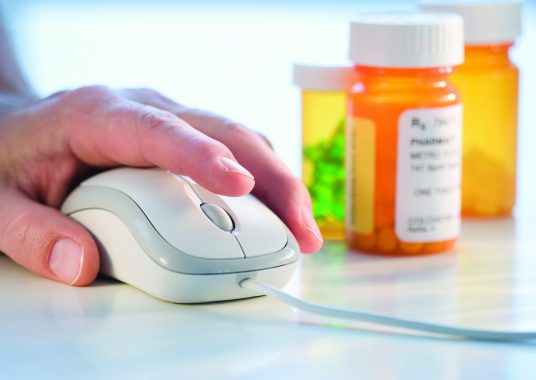I’ve found out one of my patients is flogging their medication on eBay. What do I do?

Helen cotton 330×330
Dr Helen Cotton: Get NHS counter fraud services to investigate
Prescription fraud takes several forms – altering prescriptions, obtaining medicines in another’s name and claiming free prescriptions when ineligible, to mention a few. Selling prescription drugs is illegal, defrauds the NHS and puts buyers at risk. It is thus part of GMC good medical practice to report suspected fraud.1
With any difficult situation, it is wise not to act alone and crucial to keep contemporaneous records. A conversation with colleagues – your partners and practice manager – to apprise them of your concerns is essential. The other initial step is to contact your defence organisation for guidance through the process.
To report suspected fraud, you should contact NHS Protect.2 This can be an anonymous report.
The matter of consent is complex, however. It is likely the personal details of the patient are known to you only in the context of being their GP, and are therefore covered by medical confidentiality. However, GMC guidance allows for confidentiality to be breached, without consent, in matters of public interest where to seek consent could place the doctor or others at risk, or when it may prejudice the prevention or detection of serious crime.3 Notwithstanding the severity of the potential crime, it is only appropriate to release relevant information. In summary, the GP should hand this over to NHS counter fraud services.
Dr Helen Cotton is a GP in Yeovil, Somerset

Dr Natasha Usher
Dr Natasha Usher: Invite them in to discuss the details
First, is the source of this information reliable? Have you checked it yourself? False allegations can occur. Second, it is important to bring this to the attention of all the other doctors in the practice, perhaps by holding an urgent meeting.
Is the patient aware that you know about this? What drugs are they selling? Are they prescription only and are they controlled drugs? The law is clear – it is illegal to sell these drugs, and may well be a police matter.
However, I would seek advice from your defence union before involving the police directly because of issues of confidentiality. Perhaps it might be worth considering as a practice what action to take, and to have a policy.
In addition, has the patient been asking for increasing quantities of medication or even shopping around other practices? Is there a mechanism to alert other practices nearby or indeed pharmacies? I would also discuss this with the partners.
It would be worth getting the patient in to discuss their medication and the fact that you are aware they have been selling it illegally – the patient is presumably not taking it him or herself, so reassessing any clinical need is also important, with the possibility of daily dispensing if so. As a practice, it may be worth deciding whether to stop giving that patient their medication, at least in the interim.
This is clearly a major issue, and illegal whether the patient is selling on the drug online or in person.
Dr Natasha Usher is a GP in Monifieth, near Dundee, Scotland

The medicolegal view: Consider switching to a less sellable drug
Discovering that a patient might be selling their prescription medication raises a number of issues. There may be an erosion of the trust implicit in a GP-patient relationship. There may also be a question over the patient’s compliance with treatment and whether the condition remains untreated. Additionally, social or other factors could be causing this behaviour, and the patient may be committing fraud.
GMC guidance on prescribing is contained in Good Practice in Prescribing and Managing Medicines and Devices (2013).1 Suitable arrangements must be in place for ‘monitoring, follow-up and review, taking account of the patient’s needs and any risks arising from the medicines’. Regular reviews are important, particularly if ‘medicines have potentially serious or common side-effects’, or when the prescription is for a medicine that is commonly misused’.
You may wish to involve the medicines management team at your CCG or health board, who may be aware of similar cases and how to deal with the issues. It is also important to invite the patient to discuss the allegation in person, and establish if it is true. The discussion should be handled sensitively.
Ensure the patient is aware that selling prescription-only drugs can be a criminal offence. Concerns about fraud can be reported via NHS Protect, but consider confidentiality issues and apply the principles in GMC guidance.3,4 If in doubt, ask your defence organisation.
You should also determine whether the patient still has enough essential medications, if they are indeed selling them on. Outline the potential detrimental effects for the patient and/or the recipient of the sold drugs, and consider an alternative drug that may be less sellable.
The practice may also want to set rules for prescribing. Closer monitoring may be necessary, for example by issuing short-term prescriptions only, or requiring that repeat prescriptions are requested in person at the practice.
Dr Ewen Ross is a medicolegal adviser at Medical Protection
References
1 GMC – Good practice in prescribing and managing medicines and devices (2013). tinyurl.com/GMC-meds-devices
2 Report NHS Fraud. 0800 028 40 60 tinyurl.com/y9vqlntk
3 GMC – Confidentiality: good practice in handling patient information. 2017 tinyurl.com/6cy4zam
4 NHS Business Services Authority – NHS Protect nhsbsa.nhs.uk/nhs-protect
Pulse October survey
Take our July 2025 survey to potentially win £1.000 worth of tokens













